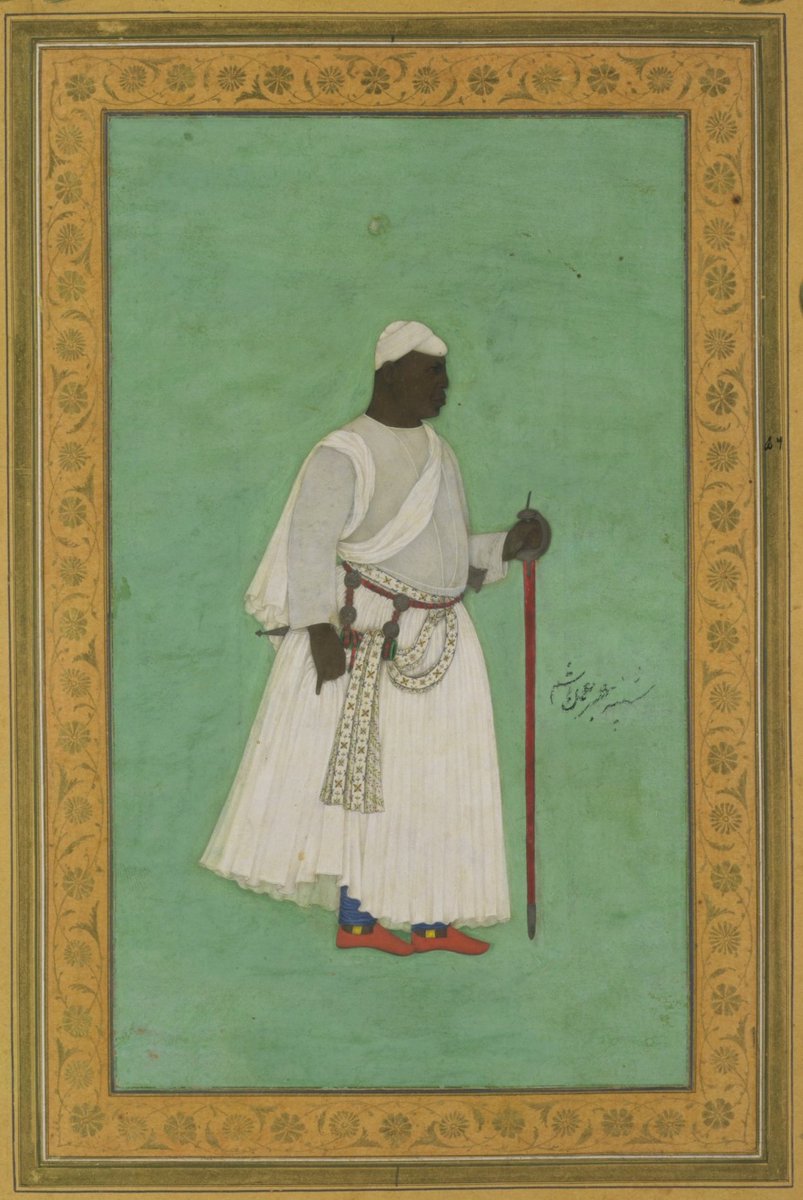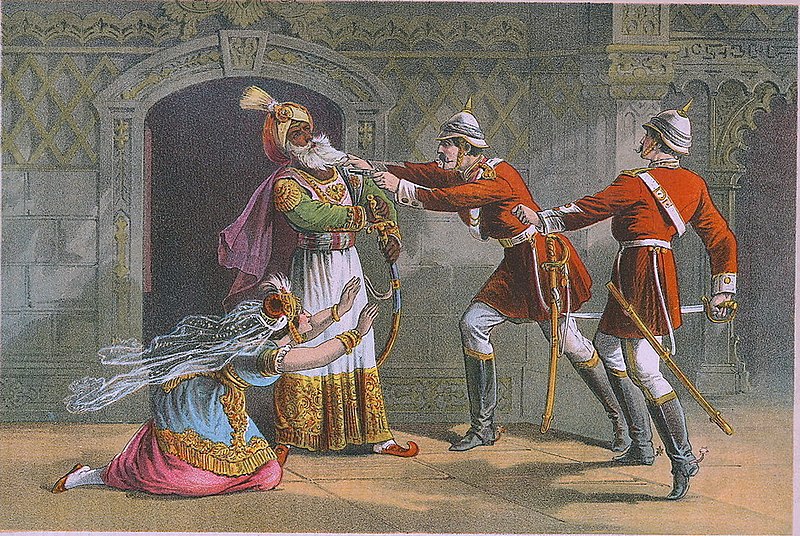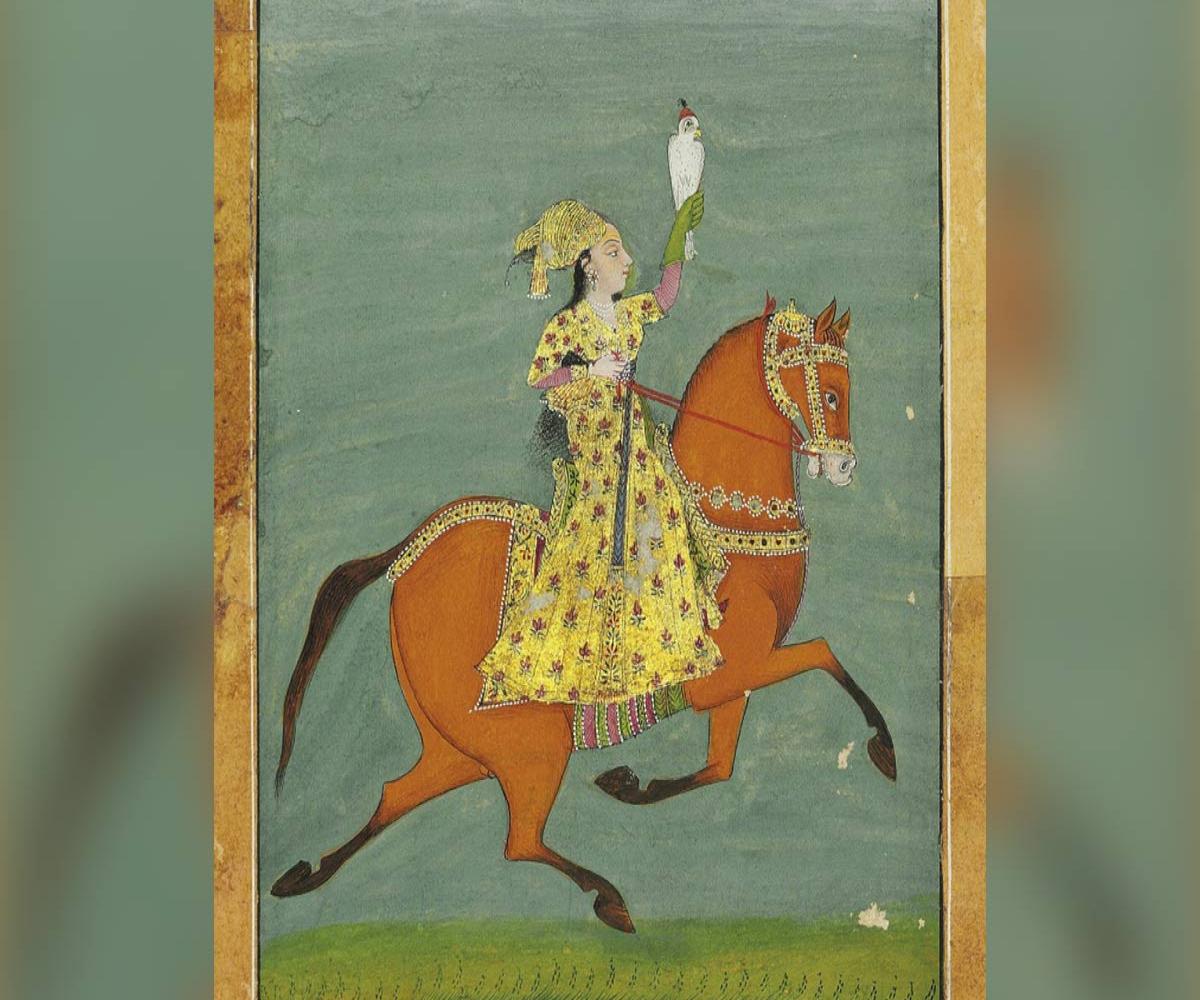#OTD, 4 May 1799, #TipuSultan, the most celebrated king of the 18th century across India, was martyred while valiantly fighting against the British colonial forces that were trying to forcefully occupy India.
#Thread
Pls Retweet & share in WhatsApp groups
#Thread
Pls Retweet & share in WhatsApp groups

At one point Tipu Sultan was most known Indian figure in England and d corridors of power in London. There is no denying that for close to four decades, first Hyder Ali and then his son, Tipu Sultan, mesmerized the British public and the consciousness of the common people there.
Hyder Ali must be the most well known name from India in London, even more than reigning Mughal emperors of time, as they had lost luster and power back home. After Hyder, this distinction went to his capable son, Tipu Sultan, who continued to harass the British in India.
Tipu Sultan was born on 10 Nov 1750 at Devanhalli. Hyder named his son Tipu Sultan after the great saint to whose mausoleum Hyder Ali and his wife had gone and prayed. He was also called Fath Ali after his grandfather Fath Muhammad.
He was exposed to wars from early age. He lived through many very hard fought wars. The most serious battle that he lived through in his childhood was when Khande Rao, a former confidant of Hyder Ali turned foe prepared the plot to completely destroy the Sultanate of Mysore.
He played great role in all the wars that Hyder Ali fought. He was an important part of his overall military planning and a part of his core group. He played a major role in the Second Anglo-Mysore war, defeating English forces in a number of encounters, proving his worth.
However, he was startled by sudden death of his father on Dec 6, 1782 during the Second Anglo Mysore War. Tipu Sultan, immediately after receiving the news of his father’s death broke up his camp and marched by forced marches towards his father’s main camp at the Pennar river.
Tipu Sultan didn’t get any time to grieve on the death of his father. Bombay Government, after coming to know that Colonel Humberstone was being threatened by Tipu Sultan’s forces in Malabar, dispatched General Matthews as a diversionary force.
He took control of several coastal towns as there was not much of opposition in Tipu’s absence. The authorities in Bombay ordered General Matthews to march to Bednur and seize it.
Despite the sudden death of his father, Tipu defeated the British forces, forcing them into submission in Mangalore. This was the biggest victory for Tipu Sultan. English were startled how he was able to recover from the shocking death of his father.
A rumor has been spread that Tipu Sultan was anti-Hindu. Due to a rather well thought out strategy, Tipu Sultan has been projected as a religious bigot who, these people claim was opposed to the adherents of other religions.
Wilks, in his book talks about large scale forced conversion under Tipu Sultan. There are some other English authors who have portrayed Tipu Sultan in the same intolerant and prejudiced manner. However, this is merely propaganda and figment of their dirty imagination.
Had this been the case, there wouldn’t have been any non Muslim officer, either in the administration or the army of Hyder Ali and Tipu Sultan. But we know that the two employed large number of Hindus at almost every level.
Many top officers in Tipu Sultan’s court and his army were Hindus. Notwithstanding the fact that his former diwan and a longtime confidante, Khande Rao, had ditched him and was able to almost destroy him, Tipu Sultan continued to put trust in his Hindu officers and courtiers.
In almost every war that Tipu Sultan fought, he was accompanied by a large number of his devoted Hindu soldiers and officers who did their utmost to protect his interests across his massive empire.
Mohibbul Hasan says “Haidar Ali had appointed Hindus to posts of responsibility in the State. Tipu followed the policy of his father. Thus Purnaiya held the very important post of Mir Asaf, while Krishna Rao was the treasurer.
Shama Iyengar was the Minister of Post and Police, and his brother Ranga Iyengar and Narsinga Rao held high positions at Seringapatam. Srinivas Rao and Appaji Ram were Tipu's Chief confidants, and were sent on important diplomatic missions.
Mool Chand and Sujan Rai were his chief agents at the Moghul court. The Sultan also placed great trust in Nayak Rao and Nayak Sangana. His chief peshkar, Suba Rao, was a Hindu. Narasaiya, one of his munshis, was also a Hindu.
Nagippaya, a Brahmin, was appointed faujdar of Coorg. A Brahmin was given the exclusive privilege of cutting the timber forests in Malabar. Another Brahmin was appointed Asaf of Coimbatore and afterwards of Palghat, and many of Tipu’s amils and revenue officers were Hindus.
In the army also Hindus held responsible positions. Нагі Singh was the risaldar of the irregular horse. Sripat Rao was appointed with Roshan Khan to reduce the rebellious Nayars.
Sivaji a Maratha, held the command of 3,000 horse, and fought bravely when Bangalore was besieged by Cornwallis in 1791. A Brahmin named Rama Rao also served as commander of cavalry”.
After ruling over a kingdom of the size of Great Britain he was martyred while fighting valiantly in the f4th Anglo Maratha War on 4 May 1799. He attained shahadah thus becoming a legend that will never be forgotten. He remains in the hearts of crores of people even now.
• • •
Missing some Tweet in this thread? You can try to
force a refresh

 Read on Twitter
Read on Twitter












